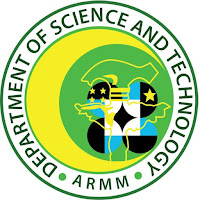DOST-ARMM announces opening of scholarship programs
Cotabato City (June 1, 2016)- The Department of Science and Technology in the Autonomous Region in Muslim Mindanao (DOST-ARMM) has announced the opening of application for its Science and Technology (S&T) scholarship programs for school year 2017-2018.
DOST-ARMM Secretary Myra Mangkabung said they’re offering three scholarship programs to qualified students in the region. It includes the admission to the Philippine Science High School System (PSHS), the Junior Level Science Scholarship (JLSS) Program, and the Accelerated Science and Technology Human Resource Development Program (ASTHRDP).
She is encouraging all interested applicants to visit the DOST-ARMM office inside the ARMM Compound in Cotabato City or any of their provincial offices to inquire about the scholarship programs and avail of application forms and brochures.
Philippine Science High School System
As stated in Republic Act No. 3661, the Philippine Science High School (PSHS), more commonly known as Pisay, was established “to offer on a free scholarship basis a secondary course with special emphasis on subjects pertaining to the sciences with the end view of preparing its students for a science career.”
Its scholarship program is intended for incoming Grade 7 students who belong to the upper 10 percent of the graduating class as certified by the school principal or those who have special aptitude in science and mathematics.
To qualify, an applicant must have a final grade of 85% or better in Science and Mathematics; must be a Filipino citizen with no pending or approved application; be born on or after August 1, 2002; must have at least a satisfactory rating (or its equivalent) in his/her Character Rating in his/her report card; not have taken the PSHS examination previously; and preferably be in good health and fit to undergo a rigorous academic program.
The PSHS entrance examination will be administered on October 22, 2016.
Junior Level Science Scholarship Program
Sec. Mangkabung said they’re also offering a scholarship program to third year college students who are currently enrolled in DOST’s priority science and technology courses such as in the field of engineering, basic and applied sciences, and are willing to teach in secondary schools in the country after graduating.
She said the program aims to strengthen the country's science and technology education by helping qualified students finish their degree and encouraging them to impart their knowledge on science, mathematics, and engineering through teaching.
"Our department (DOST-ARMM) really wants to produce quality teachers in Science, Technology, Engineering and Mathematics (STEM) subjects," she added.
She said graduates of this program will be given priority job placement in secondary schools or will be employed by the Department of Education in a position equivalent to Special Science Teacher I in the Philippine Science High School.
They are also allowed to teach even without the Licensure Examination for Teachers (LET) eligibility, but has to pass the LET within five (5) years from the date of hiring.
JLSS program beneficiaries are awarded tuition and other school fees amounting to P10,000 per semester or P8,000 per trimestral term; book allowance amounting to P10,000 per year, P6000 monthly stipend for BS Physics, Applied Physics, Physics Teaching, Geology and Mining Engineering and P5,000 monthly allowance for other priority courses, transportation allowance and group insurance coverage worth of P200,00.
The deadline for filing of application this year is onOctober 15.
Graduate Scholarships Program
Sec. Mangkabung said the DOST is set to grant scholarships to graduates in the region who want to pursue a Master's or Doctorate (MS and PhD) degree in various science and technology areas. The program is being implemented through the Accelerated Science and Technology Human Resource Development Program.
"This program aims to boost the global competitiveness for S&T researchers, and produce top-level human resources through provision of scholarship for Master’s and Doctorate degrees," she said.
She said they offer two types of graduate scholarships: the University-based MS/PhD program and Thesis/Dissertation grant support for priority areas of the DOST.
The scholarship awardees may choose from any of the following priority fields of study which includes Agriculture, Forestry and Natural Resources, Biological Sciences, Biotechnology, Chemical Sciences, Earth, Atmospheric and Space Sciences, Environmental Sciences, Fisheries and Marine Science, Information and Communication Technology, Materials Science and Nanotechnology, Pure and Applied Mathematics, Health and Pharmaceutical Sciences; and Pure and Applied Physics. (Bureau of Public Information)




